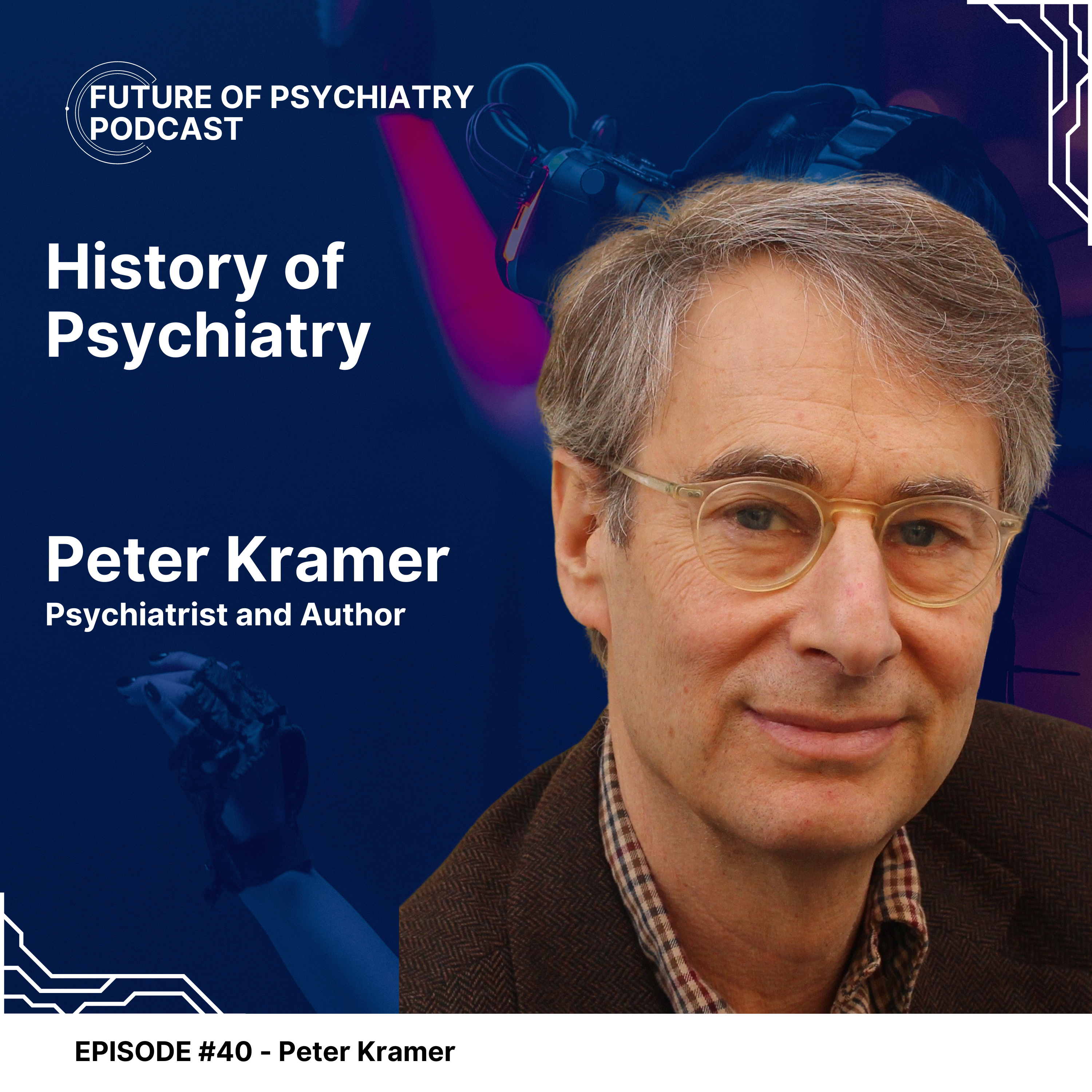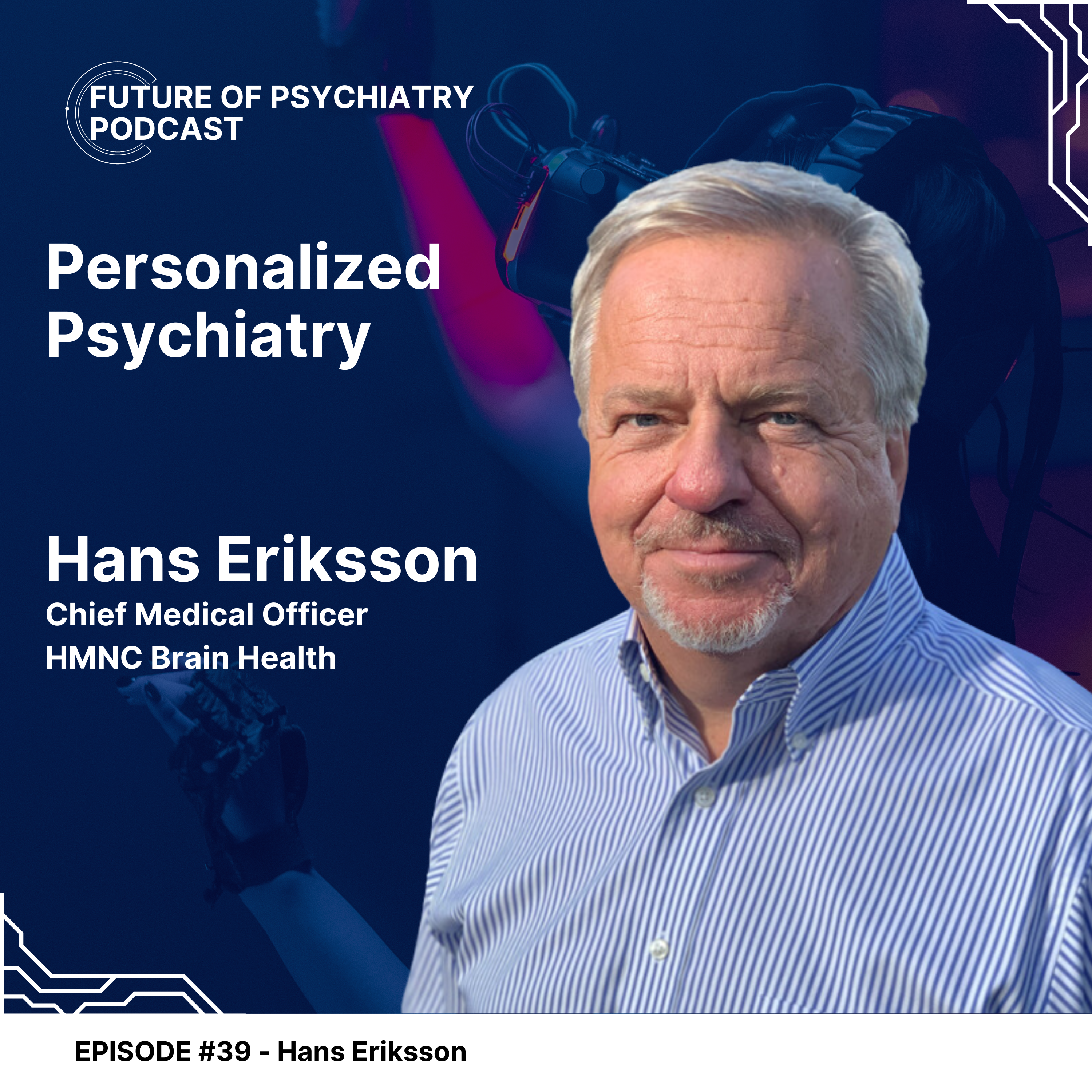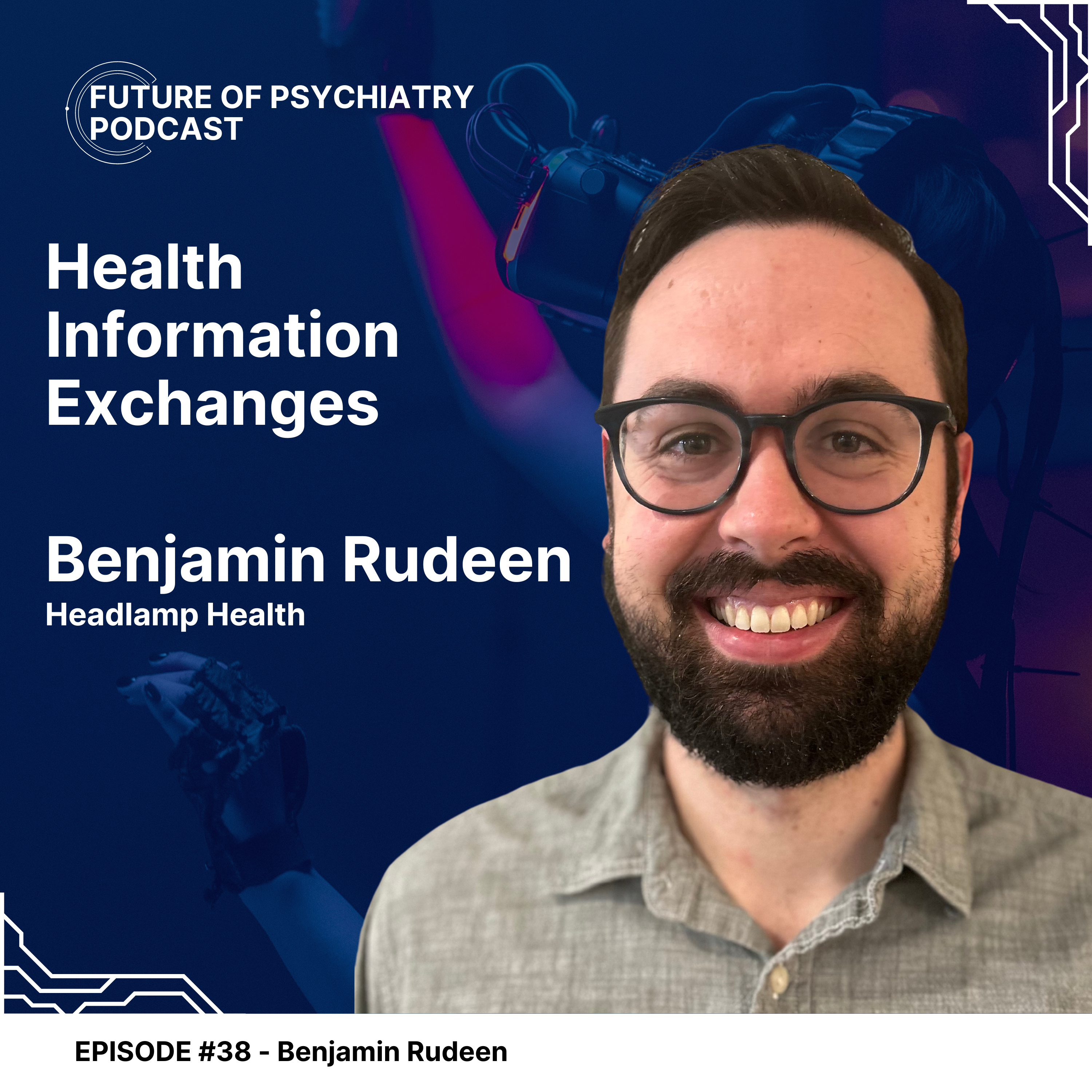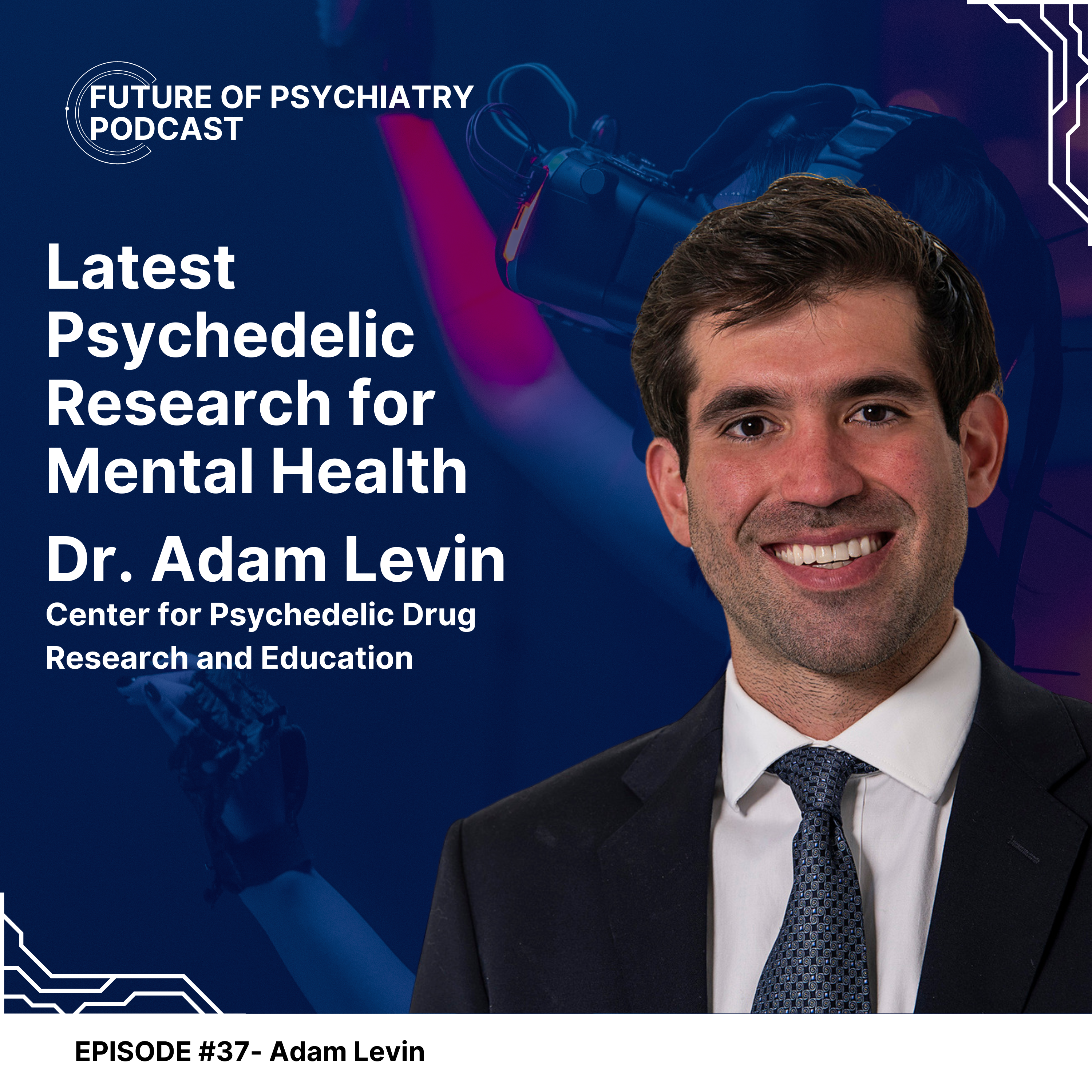#FuturePsychiatryPodcast discusses novel technology and new ideas in the field of mental health. New episodes are released every Monday on YouTube, Apple Podcasts, etc.
Summary
In this enlightening episode, we’re joined by Derek Du Chesne and Dr. Sam Zand, the co-founders of Better U, a company that is revolutionizing the field of mental health by providing access to innovative treatments like Ketamine therapy. The conversation delves into the challenges of patient education, the legislative landscape, and the unique approach to mental health care. They emphasize the importance of individualized care, debunk common misconceptions about psychedelic medications, and share their insights on the future of mental health treatments.
Chapters / Key Moments
00:00 Intro
01:36 Better U Background Story
04:26 Is Ketamine a Typical First Treatment Choice
05:45 The Patient Experience During Ketamine Therapy
09:19 The Ideal Candidate For Ketamine Therapy
12:52 The Ketamine Experience
14:24 More About The Ketamine Journey
16:58 How To Find The Right Ketamine Clinic or Therapist
20:44 Danger Of Daily Ketamine
22:51 Long lasting Impact of Ketamine Therapy
23:46 How Many Sessions Does Ketamine Therapy Take
26:44 Safety Precautions
28:21 Logistics Of Ketamine Therapy
31:06 Cultural Acceptance Of Ketamine Therapy
37:28 New Horizons In Therapy – Ibogaine VS. Ketamine VS. MDMA
46:38 Growth of Better U As A Company
50:15 Covid As Accelerator For Innovative Therapy & Telehealth
Revolutionizing Mental Health: Better U’s Innovative Approach to Psychedelic Treatments
In the realm of mental health care, innovative approaches are not just welcomed, they are necessary. One company that has been at the forefront of these innovative treatments is Better U, co-founded by Derek Du Chesne and Dr. Sam Zand. This ground-breaking company is revolutionizing mental health care by providing access to pioneering treatments, like Ketamine therapy, and focusing on individualized care.
In this enlightening conversation, Derek and Dr. Sam delve into the challenges of patient education, the legislative landscape, and the unique approach to mental health care that sets Better U apart.
Key Takeways:
- Better U, co-founded by Derek Du Chesne and Dr. Sam Zand, is revolutionizing mental health care by providing access to pioneering treatments like Ketamine therapy, and focusing on individualized patient care.
- One of the significant challenges in mental health care is patient education, particularly in debunking misconceptions about psychedelic medications. Better U is committed to reeducating the public about the benefits of treatments like Ketamine therapy.
- Navigating the legislative landscape of psychedelic treatments is complex due to multiple regulatory boards and ever-changing telemedicine laws. Better U is prepared to adapt and pivot according to these changes, ensuring they continue to provide the best care for their patients.
- Better U’s unique approach to mental health care emphasizes individualized care, meeting patients where they are and providing the care that best suits their needs. They offer Ketamine therapy as a significant part of their treatment approach.
- Looking towards the future, Better U sees significant potential in psychedelic medications in transforming mental health care. They believe that as more evidence of the transformative effects of these treatments emerges, the societal stereotypes will gradually fade.
Challenges of Patient Education in Mental Health
Patient education is one of the most significant challenges in the mental health field. It is crucial to educate patients about their mental health conditions and the treatments available to them. However, due to societal stigma and misconceptions, this can be a daunting task.
Derek Du Chesne, co-founder of Better U, emphasizes that patient education remains the biggest hurdle. Until there is a significant investment in reeducating the public about the benefits of treatments like Ketamine therapy, this challenge will persist.
Better U is tackling this challenge head-on by focusing on debunking common misconceptions and fears about psychedelic medications. They are committed to changing these perceptions and helping patients understand that these treatments can be life-changing and transformative.
Navigating the Legislative Landscape of Psychedelic Treatments
The legislative environment for psychedelic treatments is another significant challenge. With multiple regulatory boards and ever-changing telemedicine laws, navigating this landscape can be complex.
However, Better U has an exceptional team and the best healthcare attorneys in the country to stay on top of these changes. They are prepared to adapt and pivot according to the changing regulations, ensuring they continue to provide the best care for their patients within the legal confines.
Better U’s Unique Approach to Mental Health Care
What sets Better U apart is their emphasis on individualized care. Dr. Sam Zand, co-founder of Better U, asserts that the key is to meet patients where they are and provide them with the care that best suits their needs.
Ketamine therapy plays a significant role in their treatment approach. This innovative treatment has shown promising results in treating mental health conditions like depression, anxiety, and PTSD. Better U is making this therapy more accessible, providing patients with the option to undergo treatment at home or in the office, depending on their comfort and state regulations.
Debunking Misconceptions about Psychedelic Medications
One of the primary goals of Better U is to debunk misconceptions about psychedelic medications. There is a societal stigma attached to these treatments, often associated with the hippie movement or recreational drug use. However, Better U is working tirelessly to change these perceptions and educate people about the therapeutic benefits of these treatments.
The Future of Mental Health Treatments
Looking towards the future, Better U sees significant potential in psychedelic medications in transforming mental health care. They believe that as more robust evidence of the transformative effects of these treatments emerges, the societal stereotypes will gradually fade.
In their closing remarks, both Derek and Dr. Sam emphasize the importance of hope. For anyone struggling with mental health issues, especially suicidal ideation, treatments like Ketamine therapy can be life-saving. They encourage anyone feeling lost or hopeless to reach out and explore the innovative treatments available.
In a world where mental health care often follows a one-size-fits-all approach, Better U is pioneering a revolution. Their commitment to individualized care, innovative treatments, and patient education is setting a new standard in mental health care.
Resources
To learn more about Better U please click here:
https://www.linkedin.com/in/derekduchesne/
https://www.linkedin.com/in/dr-sam-zand/

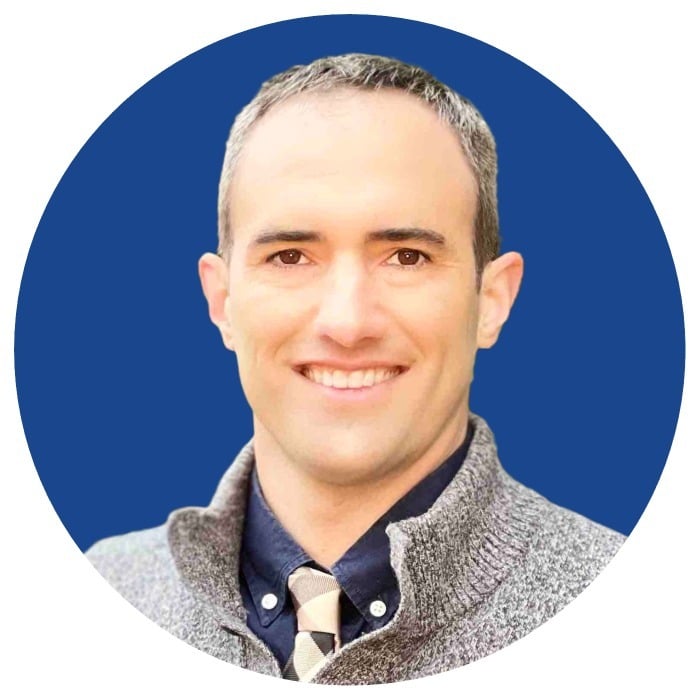 Bruce Bassi
Bruce Bassi